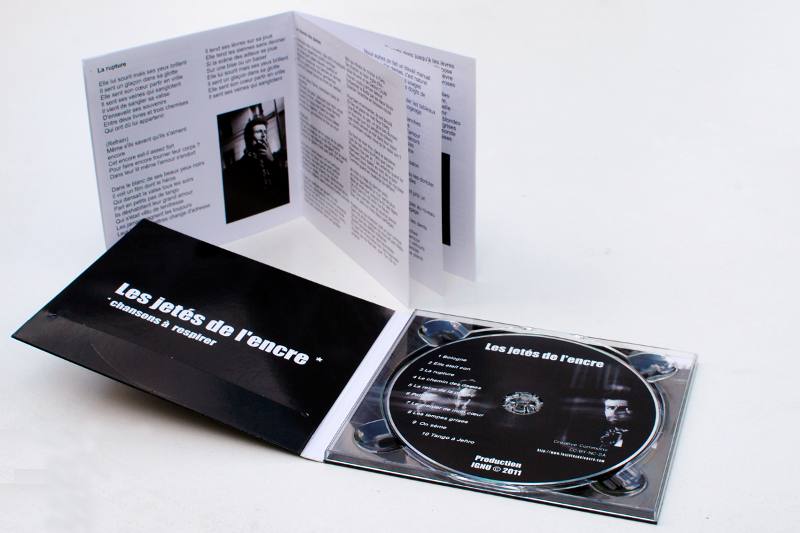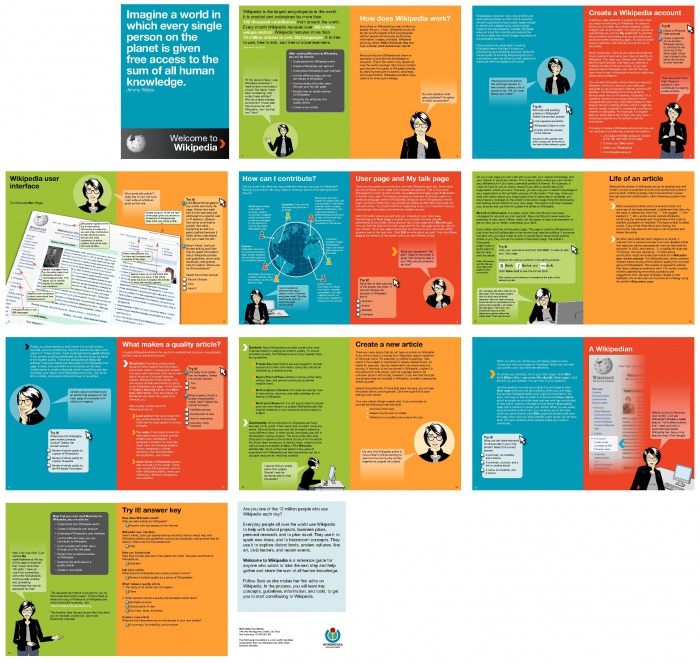Success Stories 2011: Difference between revisions
m (moved Success stories 2011 to Success Stories 2011) |
|
(No difference)
| |
Revision as of 16:04, 1 February 2012
- Success Stories 2023
- Success Stories 2020
- Success Stories 2017
- Success Stories 2016
- Success Stories 2015
- Success Stories 2014
- Success Stories 2013
- Success Stories 2012
- Success Stories 2011
- Success Stories 2010
- Success Stories 2009
- Success Stories 2008
- Success Stories 2007
- Success Stories 2006
- Success Stories 2005-2004-2003
Introduction
Anyone is invited to describe her/his experience with successfully using Scribus in her/his projects. Please note: to report any unusual reasons you use Scribus join the ongoing discussion Stupid reasons we use Scribus. There is also a special page for placing links to your work: Made with Scribus. If you want to recommend a Scribus and/or PDF friendly print shop, please use Scribus Friendly Print Shops.
2011
CD: Les jetés de l'encore / Bologne
Reporter: Gilles Maire
Date: August 2011
For us, no question to make a CD without Open Source tools. The CD was recorded with Ardour on a Linux station. We used Scribus for the CD cover and booklet. Photographer Francois Michel and all the musicians Guerran Sellin, Alexandre Taveau, Survière Florès and Sieglfried Courteaux have played in Open Source. It is a great pleasure to have used Scribus, because it is very user friendy and we have achieved a nice product for a small budget. The colors in CYMK are nicely printed.
Each CD-burner company has its own format for templates and we made the cover and the booklet with a Open Source template found on the gallery. It was very simple to adapt it for the best price company.
The CD front was very easy to make following the CD form.
You can find the CD at http://www.lesjetesdelencre.com
Thank you Scribus !
Nüüs vu Mullis
Reporter: Niklaus Giger
Date: April 2011
Mollis, a small village (about 3'000 habitants) in the Swiss mountains, has a local tourist association which publishes since around 1965 a quarterly "Nüüs vu Mullis" magazine (News from Mollis). The first issue was written using a type writer using hectography. Since three years we use successfully Scribus for its layout. Two sample pages are found under http://ngiger.dyndns.org/vvm/nüüs_vu_mullis.pdf.
Using Scribus allows us to incorporated a lot a invidual PDF files (advertisements, title page). The first two or three issues took much more time to layout, but since then we found an easy workflow which allows us to control every detail. This was a big improvement over the previous situation where a print shop did the layout and usually only corrected two out of three errors reported.
If anybody in the surroundings of Mollis would like to use Scribus for a similar magazine, we would be glad to offer some help.
Choices Magazine
Reporter: Lisa Charles
Date: February 2011
Choices Magazine is a new UK glossy subscription only magazine for the employeepreneur, marketed via Direct Sales. Our main target market is employees making the transition to self employed, to business owner; with our secondary market being very early start-ups. Our focus is on the next generation of industry leaders and entrepreneurs to nurture and build into successful brands. The big dreamers and forward thinkers; in particular, today’s self starter and tomorrow’s entrepreneur; the next gigantic global brand. And for the serious entrepreneur; Choices Magazine provides a stream of income and a huge platform to develop and launch brands. Our features, stories and articles (including success principles, practical projects, problem solving techniques and business strategies) give our readers the knowledge, skills and know how, to win. We provide information to give them the edge, focus and necessary qualities to deliver their best, and to be a leader in their field. Choices incorporates information in four crucial areas necessary for a successful and balanced life: Business Choices, Lifestyle Choices, Wellbeing Choices, and Personal Growth Choices.
I used Scribus 1.3.9 to do the first pre launch issue (32 pages), which is available now, and have started working on the launch issue (64 pages), out at the end of March 2011. There was a slight learning curve, getting used to Scribus, but overall I think it's an excellent program. The proof we received from the printers was of excellent quality, putting my fears to rest that the pdf output would not be compatible for some reason (although Scribus do make clear that the commercial printing quality is superb!).
Wikipedia Bookshelf Project
Reporter: Frédéric Schütz
Date: January 2011
The Wikipedia Bookshelf Project is creating a core set of public outreach materials designed to help new contributors understand the specific culture of Wikipedia, the free, online encyclopedia that anyone can edit. The materials aim to increase new contributor awareness and interest, foster excitement about contributing to Wikipedia, and provide key training tools. The materials are being developed in English; however, they are to be designed for easy translation, localization, and customization by volunteers, local chapters, and educational institutions such as schools and universities. Bookshelf materials are being developed by the project team from the Wikimedia Foundation (the Foundation that oversees the development of Wikipedia), community volunteers, and production experts.
The combination of these requirements naturally led the project team to choose Scribus to create these materials. Scribus fits perfectly with the goals of the Wikimedia Foundation, and allows anyone to easily access the tools needed to contribute to the project. The resulting materials are also published under a free license (Creative Commons Attribution-Share Alike, except for the Wikipedia and Wikimedia logos).
The material produced so far can be found at http://outreach.wikimedia.org/wiki/Bookshelf (note that the last two documents in the list of printed material were not created with Scribus; in particular, the project is currently looking for a volunteer who could convert the document Video for Wikipedia and the Open Web: A Guide to Best Practices for Cultural and Educational Institutions, originally created using Adobe InDesign, in Scribus format).
Some of the Scribus files are already available at http://outreach.wikimedia.org/wiki/Localization_guidelines_(Bookshelf), in particular for the Welcome to Wikipedia booklet (PDF, ZIP files with Scribus source).
The Rockfish Files
Reporter: Keith White
Date: January 2011
This first issue of The Rockfish Files was a collaborated effort, but edited and created solely with open source software. Scribus v1.3.9 was used, and is being used in production of issue #2 to be released in march 2011.
A 60 plus page effort to show the world that British lure fishing can be more than just bass orientated. This document received over 5000 unique reads in the first 14 days of its release.



